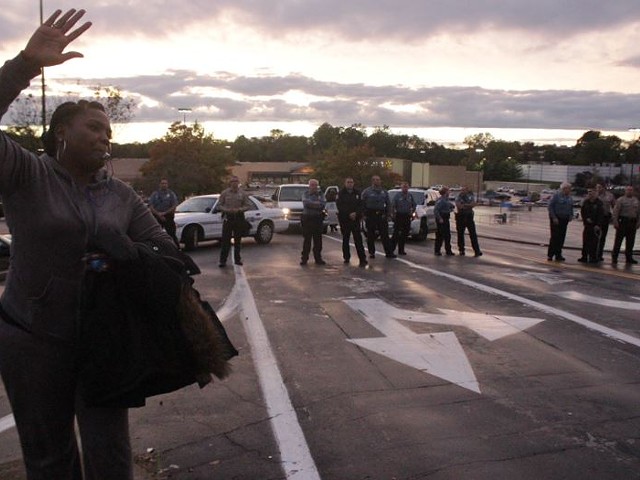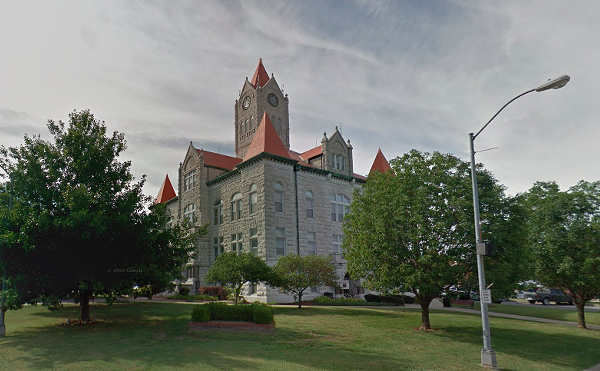
Dressed in tuxedos and glittering bow ties, Bruce Yampolsky and Terry Garrett ascended St. Louis City Hall's marble staircase to the second floor prepared to do something illegal — a secret operation months in the making.
Garrett, a 56-year-old archivist for the city's Recorder of Deeds office, carried a canvas bag. Inside: two purple yarmulkes, a prayer shawl and a Waterford crystal glass.
"We were given certain instructions," recalls Yampolsky, a 72-year-old former committeeman who now works as a city employee for the Board of Public Service. "Be there at a certain time. Have your own photographer. Have your own judge or clergyperson there."
It was a muggy Wednesday evening in June, and city hall was largely cleared out. So no one saw the two men (or Garrett's mother in a wheelchair) enter the grand downtown structure through a handicap-accessible tunnel. At the door, city marshals allowed them into Mayor Francis Slay's inner sanctum.
Two hours later, Garrett and Yampolsky stood next to a beaming, bespectacled woman with short, sandy blond hair, a bouquet of lilies pinned to her black blouse. This was Garrett's boss, St. Louis' recorder of deeds Sharon Carpenter. Soon, the three were seated at a polished wooden conference table. Garrett and Yampolsky raised their right hands.
"Do you certify that the information you provided is correct to the best of your knowledge and belief, and that you're free to marry under the laws of this state, and not blood related?" Carpenter asked them.
"Yes," both men said.
Garrett and Yampolsky were one of the four same-sex couples married in secret that evening, during a ceremony attended by Mayor Francis Slay; the city's first openly gay alderman, Shane Cohn; Alderwoman Jennifer Florida; and a handful of friends. But Carpenter was the most essential official at those weddings. As the recorder of deeds, only she could issue the marriage licenses. Only her signature could make them valid in the city, though they'd be simultaneously in violation of a Missouri state constitutional amendment. Her office was rarely heard about in the news, but at 72, Carpenter was at that time the longest-serving elected official in St. Louis, a fixture of the city's political scene since the 1960s.
When the news broke the next day, it became Carpenter's most triumphant moment in public office. In one portrait she's seated at the head of the mayor's conference table, surrounded by the four couples as they raised a Champagne toast.
"It is time to make a stand," she said at the press conference announcing the weddings. "This is not a decision I have made lightly, but it is a right that must be defended. St. Louis stands with those who stand for love."
In an editorial titled "HOLY CHUTZPAH," the St. Louis Post-Dispatch praised Slay and Carpenter. The head of Missouri gay-rights group PROMO called Carpenter and Slay "courageous," and during the PrideFest parade, she gleefully waved to the crowds from the front seat of a gleaming red-and-white Studebaker.
So it came as a shock when, just sixteen days later and still in the midst of her victory lap, Carpenter resigned from her position of 34 years for violating the state's nepotism law. But that was just the beginning of her fall from favor.





